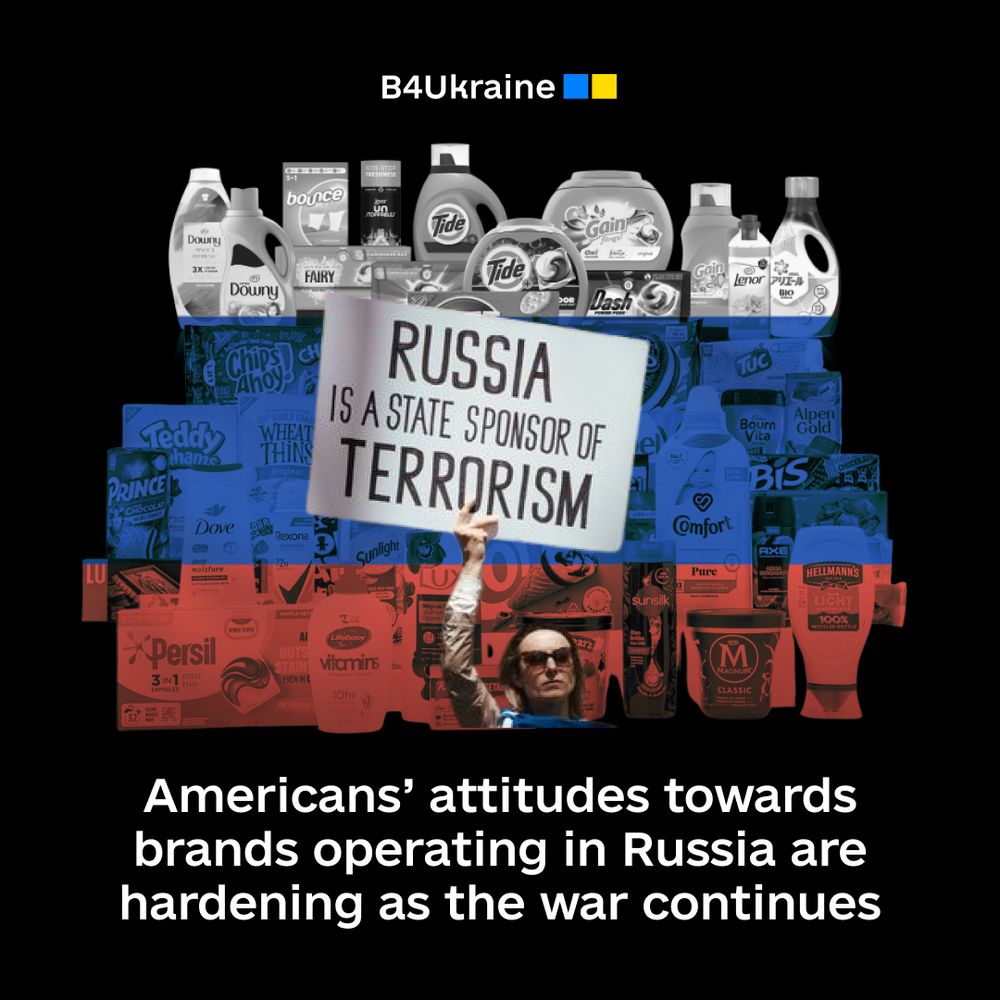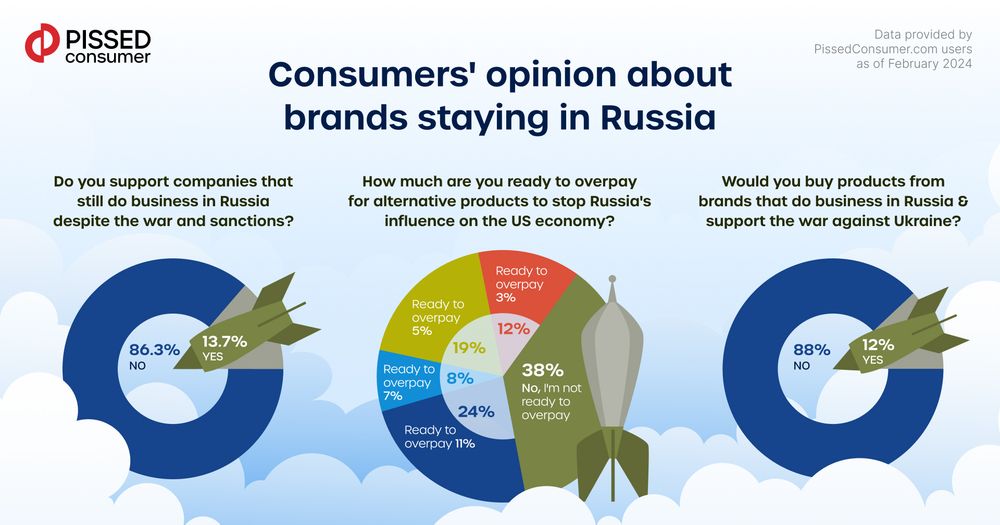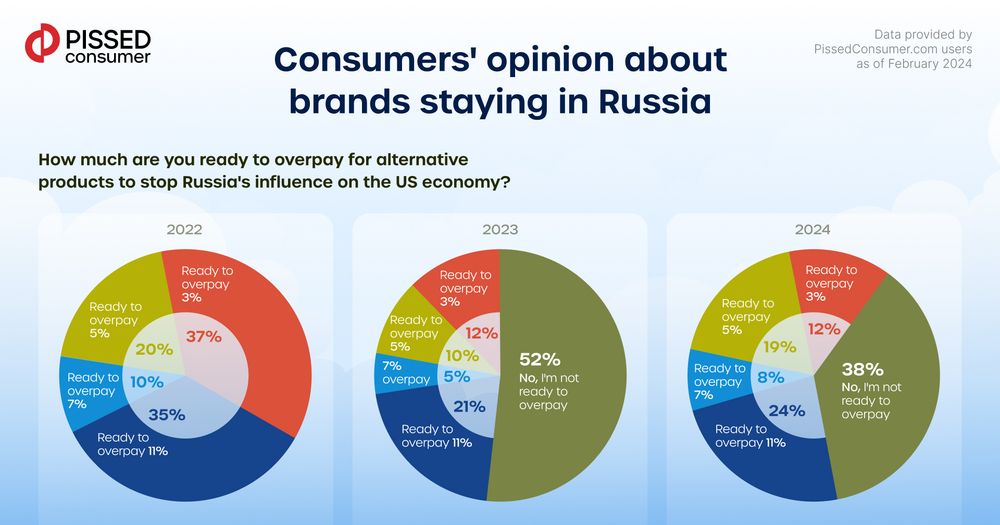
The American people have taken a tougher stance against Western brands that continue to do business in Russia over the past two years.
As the humanitarian crisis in Ukraine drags on due to Russia’s unprovoked invasion, consumer support for companies operating in Russia has markedly declined. PissedConsumer statistics compiled from consumer surveys conducted from 2022 to 2024 show that Americans are becoming less tolerant of brands that profit from—and tacitly support—Moscow’s belligerent actions through their ongoing commercial ties to Russia.
Consumer Survey Findings Point to Growing Intolerance
A 2024 PissedConsumer survey* of over 1,500 American consumers finds that 86.3% do not support companies that refuse to leave Russia despite the war and sanctions, up from 77.3% in 2022. Similarly, 88% said they would not buy products from brands operating in Russia, compared to 79.7% in the initial 2022 poll.
Consumers are also more willing to personally inconvenience themselves to shame Russia-tied brands. In a 2023 survey, 52% of respondents stated that they would not be prepared to pay extra to avoid contributing to the Russian economy, whereas in 2024, that percentage dropped to just 38%.
As the humanitarian crisis in Ukraine has dragged on, so too has consumer patience worn thin for brands profiting off the aggressor nation. Two years after the conflict began, the amount that consumers are prepared to pay over the odds for alternatives to Russian products has decreased from 2022, yet the numbers are gradually on the rise from 2023 figures, with over a third willing to pay up to 3 to 11% higher prices in order to avoid buying from companies still in Russia.
Prominent Brands Face Increased Scrutiny
Announcements by several major brands that they were suspending Russian operations or withdrawing investments seemingly did not go far enough. Many major multinationals, including Procter & Gamble, PepsiCo, and Mondelez, in fact still maintain significant business activities in Russia.
While announcing temporary halts or reduced investments, in actuality these brands’ operations and profit streams in Russia have persisted. Many earnings from offices, factories, distribution networks, products, and brand recognition built up over decades. By maintaining a presence, companies doing business in Russia prop up the country’s economy and war effort through tax contributions.
This persistence has misled consumers and is therefore likely to have undermined trust, as companies that attempt to create a false impression of suspending operations while quietly continuing to profit may face damaged reputations and conscious consumer backlash as sentiment hardens.
Impact of the Ongoing Invasion
The shifting sentiment likely reflects how the continuous human tragedy in Ukraine, now in its third year, has impacted Americans. Stories of civilian bombings and mass casualties have understandably enraged many consumers against brands whose ongoing financial support allows Russia to sustain its military capabilities. As images of the toll on Ukrainian civilians persist, tolerance for companies trading with Russia has diminished.
Moving Forward With Principled Choices
The 2024 survey reveals that 65.9% of consumers would write an email to companies that raised concerns due to their links with Russia. By ‘shaming’ brands in Russia, PissedConsumer’s goal is not to outright encourage consumer boycotts of companies remaining in Russia, but rather empower people with clear, factual information that enables them to make principled purchasing choices that are aligned with their ethics and values.
As an advocate for ethical consumerism, PissedConsumer.com has actively attempted to address this issue through initiatives outlined in its mission statement on bringing attention to those brands doing business in Russia. This includes maintaining dedicated company profiles, surveys of consumer sentiment, and providing opportunities for consumers to directly contact brands still in Russia through the review platform.
As explained in the PissedConsumer statement, this endeavor aims to increase awareness and understanding of the link between spending and financing war, thus allowing consumers to make informed decisions that take into account what their spending is actually paying for.
PissedConsumer.com conducted an online survey of 1586 consumers from the United States as of February 2024


